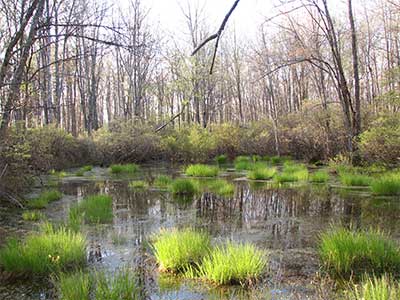Pittsburgh, Pa. – September 28, 2020 – The impacts of our changing climate become more apparent with every season. How is climate change affecting our region’s species and how are conservationists reacting in order to increase survival chances for the most vulnerable species and habitats?
Join the Conservancy for a free webinar via Zoom with Charles Bier, WPC’s senior director of conservation science, for answers to these important questions.
 Conservation in a Changing Climate
Conservation in a Changing Climate
Thursday, October 22 at 12 p.m. (noon)-1 p.m., EDT
As climate change alters the environment, nature is responding with changes in habitats and populations of plants and animals. This changing world requires a reevaluation of conservation practices to help protect habitats and species. Essential to this work is increasing efforts to protect resilient landscapes, certain under-protected habitats and corridors that allow species to travel to more hospitable locations as conditions change.
For decades, Charles has studied the changing climate and will share his insight and hope on this important topic. Explore some of the patterns that are continuing to emerge due to climate change, and how the Conservancy is addressing these conditions through our conservation science and land and water protection work.
Learn more about climate change and view a free recording of this webinar.
- Read more about climate change.
- Find out more about WPC’s climate change research.
- Learn about the science of climate change.
- This webinar is free, but donations are welcome.
###
About the Western Pennsylvania Conservancy:
The Western Pennsylvania Conservancy (WPC) enhances the region by protecting and restoring exceptional places. A private nonprofit conservation organization founded in 1932, WPC has helped to establish 11 state parks, conserved more than a quarter million acres of natural lands and protected or restored more than 3,000 miles of rivers and streams. The Conservancy owns and operates Frank Lloyd Wright’s Fallingwater, now on the UNESCO World Heritage List, which symbolizes people living in harmony with nature. In addition, WPC enriches our region’s cities and towns through 132 community gardens and other green spaces that are planted with the help of more than 11,000 volunteers. The work of WPC is accomplished through the support of more than 9,000 members. For more information, visit WaterLandLife.org or Fallingwater.org.
